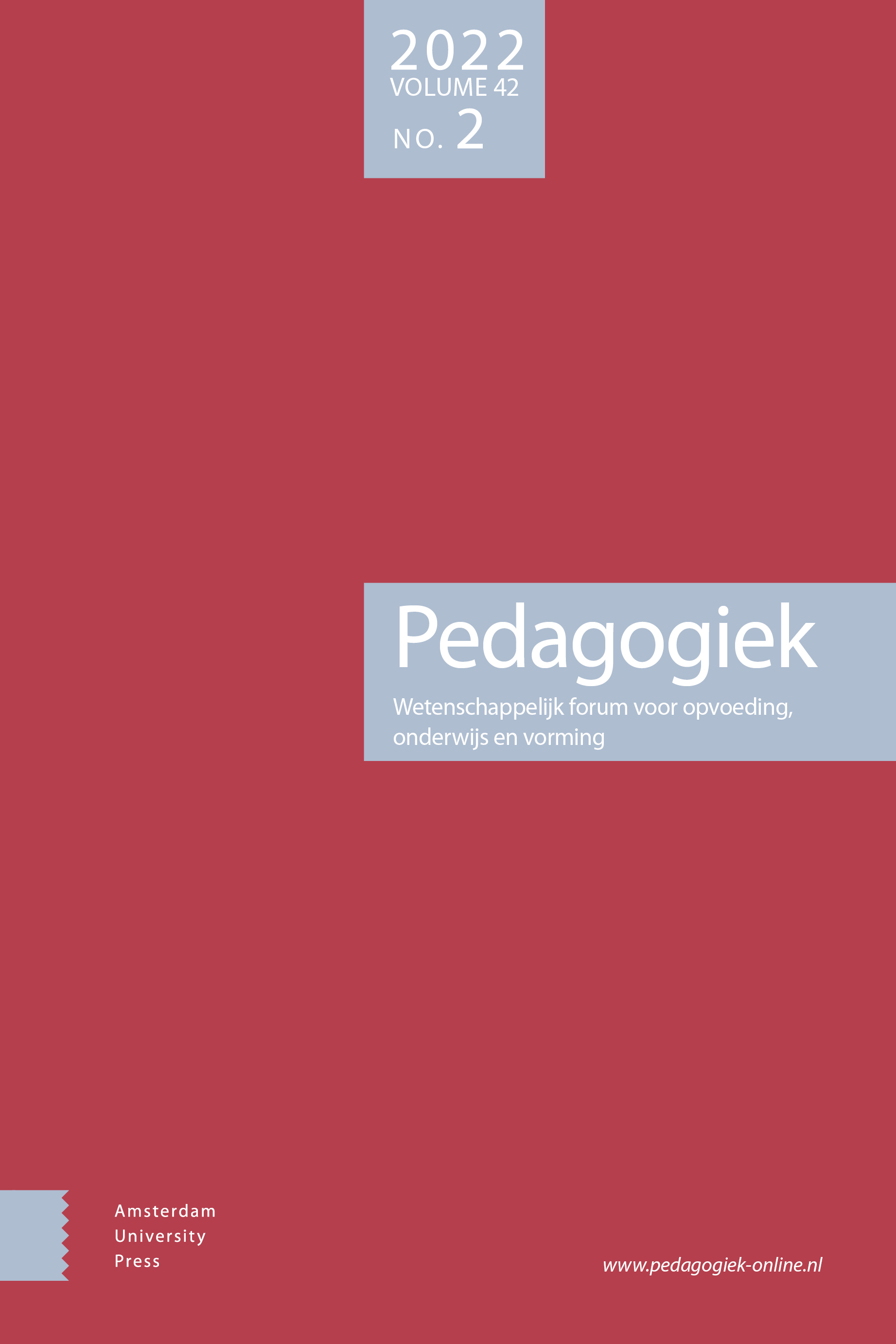-
oa Nog een jaartje wachten met groep 3?
Kleuterbouwverlenging maakt je geen betere lezer
- Amsterdam University Press
- Source: Pedagogiek, Volume 42, Issue 2, Dec 2022, p. 164 - 182
-
- 01 Dec 2022
Abstract
In het Nederlandse basisonderwijs is de overgang van groep 2 naar 3 nog altijd voer voor discussie. In dit onderzoek bestudeerden wij, middels een longitudinaal design, de relatie tussen technische leesvaardigheid, RIA (reading instruction age) en beginnende geletterdheidprestaties van Nederlandse leerlingen. Hiervoor werden onder 143 leerlingen twee metingen gedaan: een taalbewustzijnsmeting in groep 2 en een toets technisch lezen in groep 3 (DMT). Leerlingen met een lagere RIA bleken beter te scoren op de technische leestoets. Doorslaggevend in de relatie tussen RIA en technische leesvaardigheid in groep 3 bleek het niveau van taalbewustzijn van de vijfjarige leerling in groep 2 te zijn. Leerlingen die voldoende taalbewust waren op vijfjarige leeftijd, maar desondanks een jaar langer in groep 2 bleven, profiteerden niet van hun hogere RIA: ze behoorden een jaar later tot de zwakkere lezers in groep 3. Deze resultaten zouden een indicatie kunnen zijn voor leerkrachten dat zij in het belang van de leesontwikkeling voorzichtig en weloverwogen om moeten gaan met de keuze voor wel of niet doubleren in groep 2.


